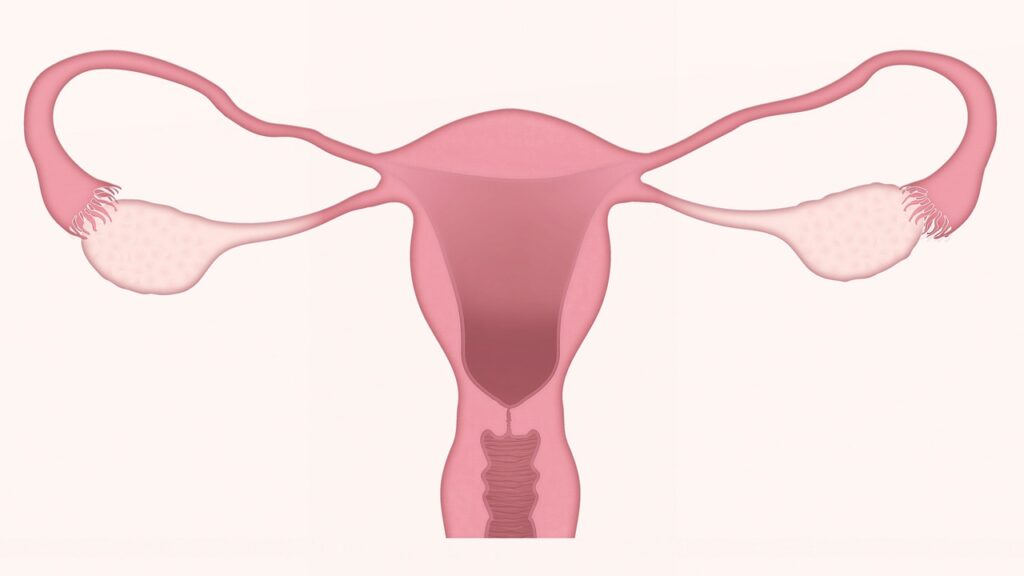Menopause is a natural biological process. Menopause is that time in a woman’s life that marks the end of her menstrual cycle. In this article I have mentioned everything about menopause. Its cause, its symptoms and how long does menopausal symptoms last. I have even mentioned few ways through which you can overcome these menopausal symptoms.
WHAT IS MENOPAUSE ?
Menopause is defined as the period when permanent cessation of menstruation takes place. Normally Menopause occurs at the age of 45- 55 years and it’s preceded by a couple of years of hormonal and physical changes and this is called perimenopause.
In some women the menstruation stops suddenly, in others the menstrual flow decreases gradually during every cycle and then finally stops. Sometimes irregular menstruation occurs with lengthening or shortening of the period with less or more flow. Hence menopause doesn’t occur overnight, it’s a gradual transition from perimenopause to menopause. The period of perimenopause differs in every woman. To be more specific a woman has entered menopause when an entire year has passed since the last menstrual period. Early menopause may occur because of surgical removal of ovaries or uterus as a part of treatment for abnormal menstruation.
Usually females with short menstrual cycle attain menopause earlier than the females with longer cycle and cigarette smoking causes early onset of menopause.
CAUSES
Women contain 2 ovaries. These ovaries contain 400 million primordial follicles. Each primordial follicle contains ovum, which is incompletely surrounded by granulosa cells. Granulosa cells provide nutrition to the ovum during childhood and also secretes the oocyte maturation inhibiting factor which keeps the ovum in the immature stage. All the follicles present in the ovaries are formed before birth. No new ovum is developed after birth.
During each menstrual cycle one of these follicles matures and ruptures at ovulation and releases ovum. This process is stimulated by FSH and LH. If this ovum/oocyte gets fertilized by a sperm then it leads to pregnancy and if it doesn’t get fertilized by a sperm then it would just carry on, down its path and that leads to bleeding/ menstruation and you don’t get pregnant. The weird thing is even though females are born with 400 millions of follicles only about 450 of them can actually get mature enough to release their ovum throughout the lifetime and the rest of them just gets degenerated.

At the age of 45 years only a few primordial follicles remain in the ovary to be stimulated by FSH and LH. Due to the decrease in primordial follicles there is a decrease in production of estrogen and progesterone. When estrogen secretion becomes almost zero, FSH and LH are continuously secreted. Due to the advancement of age atrophy of ovaries occurs. When all the primordial follicles are atrophied estrogen secretion stops completely and the women enters the menopause stage.
Hence the main cause of menopause is the decrease in the production of progesterone and estrogen hormones by the ovaries and depletion of primordial follicles.
STAGES
Like I have mentioned earlier menopause doesn’t occur overnight. It’s a natural and a gradual transition.1
1. PERIMENOPAUSE
- Perimenopause phase usually begins several years before menopause.
- Time span of perimenopause differs in every woman.
- In this period ovaries have a very less functional follicle. So, the menstrual cycle proceeding menopause are often anovulatory which means without ovulation.
- Lack of ovulation can cause missed/irregular periods.
- Many women experience few menopause symptoms too.
2. MENOPAUSE
- Menopause is the year were a woman haven’t experienced her periods at all.
- The ovaries have stopped releasing eggs and hence the level of estrogen secretion is gradually reducing to 0.
3. POSTMENOPAUSE
- Postmenopause is the period after menopause.
- In this period the women experience post menopause symptoms like hot flashes and night sweats, vaginal dryness etc.
SYMPTOMS OF MENOPAUSE

Postmenopausal syndrome is a group of symptoms that appear in women immediately after menopause. It is characterized by certain physical, physiological and psychological changes. Symptoms may persist till the body gets adapted to the absence of estrogen and progesterone hormones.
- Hot flashes and night sweats which can lead to trouble in sleeping.
- Vaginal dryness which can lead to dyspareunia which is experiencing pain while having sex.
- Cardiovascular disorders (due to decrease estrogen level)
- Osteoporosis (due to decrease estrogen level)
- Mood swings
- Trouble focusing
- Hair loss
- Growth of facial hair
- Headache
- Mental depression
HOW LONG DO SYMPTOMS LAST?
These symptoms usually go away after a couple of years. In general, these symptoms might last for 1- 4 years but as mentioned earlier it differs from women to women.
HOW YOU CAN OVERCOME MENOPAUSE?

Even though transitioning into menopause is a natural step in the aging of the female reproductive system. These symptoms may have a negative impact on overall well-being. The good news though is that, the body can adjust to the hormonal changes. So, these symptoms actually go away on their own after a couple of years.
But in meanwhile there are tons of ways that can alleviate them. For example,
- For hot flashes and night sweats it would be really useful if you avoid hot drinks and spicy foods, as well as just by maintaining a cool environment.
- For vaginal dryness you can use vaginal estrogen cream.
- Maintaining a good lifestyle would be the best way through which you can overcome these symptoms.
- Include healthy food, meditation, yoga etc.
- Practice pranayama daily in the morning. This helps you relax and prevents mood swings Pranayama – 8 Effective techniques for beginners
- Avoid smoking. Tabaco might just increase hot flashes.
- Stay socially and mentally active.
Usually most of the women manages it very well. But about 15% of the women actually needs treatment. In many cases psychotherapy works very well. If it fails hormone replacement therapy is given. Hormone replacement therapy is basically daily administration of estrogen in small quantities which will help reverse the symptoms. Doses of the hormone should be gradually reduced to prevent the recurrence of post-menopausal symptoms.
Ovaries have stopped sending out eggs once you’re in menopause, so you can’t get pregnant. But that doesn’t mean you can’t get sexually transmitted disease. Hence just be safe while having sex if you are not in a relationship with one person.
I hope this article helped you and solved all your doubts about menopause. For more such article you can check our website medicoved.com
Author : Dr. Easminara shaikh

